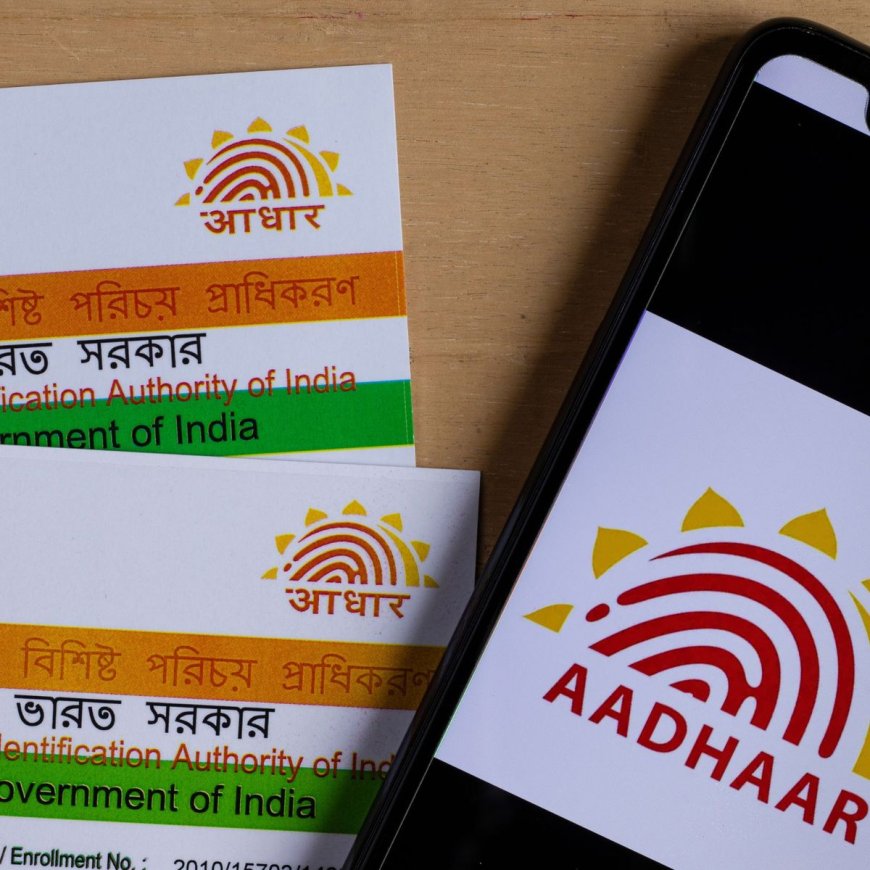Aadhaar, PAN, Voter ID Doesn’t Prove Indian Citizenship: Bombay High Court
Bombay HC rules Aadhaar, PAN, Voter ID are not proof of citizenship; calls for stronger, dedicated nationality verification.

Introduction & Context
In a landmark ruling, the Bombay High Court recently clarified that possessing an Aadhaar card, PAN card, or Voter ID card does not serve as definitive proof of Indian citizenship. This judgment, which has significant legal and administrative implications, came while hearing a case involving disputes over an individual’s citizenship status. The decision reaffirms that these documents, while crucial for identity verification and access to services, are not conclusive evidence of nationality.
Historical Background
Over the years, India has developed multiple identification systems — the Aadhaar program was launched in 2009 to create a biometric-based identity for residents; PAN cards have long been used for tax purposes; and Voter IDs are issued to enable participation in elections. However, none of these were originally designed as citizenship documents. This distinction became important in legal cases where individuals attempted to use these IDs to prove nationality.
Why This Decision Was Taken
The court acted upon cases where individuals tried to establish their citizenship status solely through these documents. The judges highlighted that:
-
Aadhaar is issued based on proof of residence, not nationality, and even long-term foreign residents in India can get one.
-
PAN cards are issued primarily for income tax purposes and can be obtained by non-citizens working or investing in India.
-
Voter IDs are tied to electoral rolls, which can contain errors and are not a legal record of birth or nationality.
The suddenness of this decision is linked to rising disputes in courts over citizenship, particularly in the context of illegal immigration, NRC (National Register of Citizens) debates, and citizenship verification in sensitive regions. The judiciary found it necessary to put an end to misconceptions that these everyday IDs alone could serve as conclusive nationality proof.
Future Identity Proof Updates We Can Expect
This ruling could pave the way for:
- A dedicated Citizenship Card — specifically issued after thorough verification of birth records, parentage, and legal status.
- Digital Nationality Registry — integrated with government databases to maintain secure, tamper-proof records.
- Stricter NRC-like frameworks in certain states for more accurate demographic data.
- Mandatory linkage between birth registration and a national citizenship number at the time of issuance.
Significance of the Ruling
-
Legal Clarity: Eliminates the false assumption that common IDs can double as citizenship proof.
-
Security Enhancement: Reduces risks of fraudulent claims to nationality benefits.
-
Administrative Reform: Pushes policymakers toward a more structured citizenship documentation system.
Reason Behind the Judgment
The Court emphasized that:
-
Aadhaar is issued based on residency, not citizenship. Even foreign nationals living in India for the required period may obtain one.
-
PAN cards are granted for taxation purposes and can be issued to non-citizens conducting business or earning income in India.
-
Voter IDs are given based on electoral rolls, which may sometimes have errors or outdated data.
Therefore, these documents cannot replace a citizenship certificate, birth certificate, or official nationality confirmation.
Possible Future Developments
The ruling could push the government to introduce or strengthen a National Register of Citizens (NRC) or implement a dedicated citizenship ID to avoid confusion. This might also affect verification processes for jobs, benefits, and legal matters.
Importance & Significance
-
Clarifies misconceptions about identity documents.
-
Strengthens legal standards for citizenship verification.
-
Impacts various legal cases related to nationality disputes.
Advantages of the Ruling
-
Prevents misuse of common IDs for fraudulent citizenship claims.
-
Encourages accurate and secure citizenship documentation.
-
Helps the government maintain a clear distinction between residency and nationality.
Disadvantages of the Ruling
-
May cause inconvenience for genuine citizens lacking official birth or citizenship certificates.
-
Could lead to increased paperwork and verification delays.
-
Might create confusion for those who believed these IDs were sufficient proof.
Final Thoughts & Conclusion
The Bombay High Court’s decision is a reminder that citizenship is a legal status requiring specific proof, not just possession of popular IDs. While Aadhaar, PAN, and Voter ID remain vital for daily life, they cannot replace legal citizenship documents. Moving forward, citizens should be aware of the legal requirements and ensure they possess valid nationality proof to avoid future complications.

 Ellofacts
Ellofacts 





